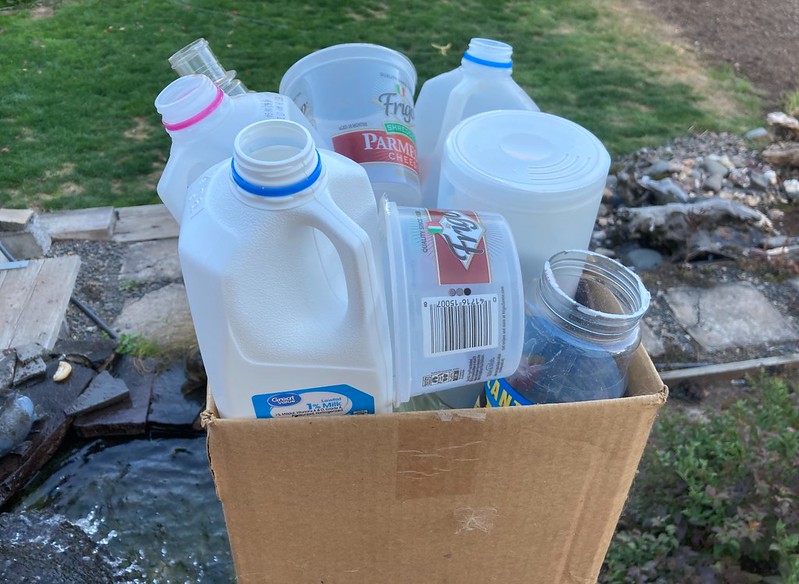Politics
Oregon Faces Legal Challenge Over New Recycling Law

The implementation of the Plastic Pollution and Recycling Modernization Act in Oregon is facing a significant legal challenge just weeks after its launch. The National Association of Wholesaler-Distributors has filed a lawsuit against the state, claiming the law is unconstitutional and unfairly places the burden of recycling fees on distributors.
Passed by the Oregon Legislature in 2021, the law aims to establish statewide recycling standards and introduce new fees for packaging materials. Under this framework, products made from hard-to-recycle materials, such as certain plastics, incur higher fees compared to those that are more easily recycled. This initiative is part of a broader effort to shift the costs of waste disposal from consumers and local governments to manufacturers and distributors.
The law was designed to incentivize the use of sustainable packaging by levying lower fees for products with reduced or reusable packaging. Previous regulations in Oregon have already mandated that manufacturers share some of the end-of-life costs for items like paint, mattresses, and electronics.
On July 30, 2023, just three weeks after the law took effect and manufacturers received their initial bills, the wholesaler association filed the lawsuit in the U.S. District Court in Portland. The suit names the Oregon Department of Environmental Quality, the Environmental Quality Commission, and State Attorney General Dan Rayfield as defendants.
Concerns Over Fee Structure
The wholesalers contend that the law is unconstitutional because it delegates regulatory authority over the fee structure to a private entity, the Circular Action Alliance (CCA), instead of the state’s environmental quality department. This nonprofit organization, established in 2022 and comprising 20 multinational corporations, including Amazon, Coca-Cola, and Nestlé, oversees similar recycling fee programs in states such as California, Colorado, Maine, and Maryland.
In Oregon, the CCA is tasked with setting and collecting fees for 60 different material categories based on their weight and recyclability. It also collaborates with local governments to determine how to invest the revenue generated from these fees in projects aimed at enhancing the state’s recycling infrastructure.
Eric Hoplin, president and CEO of the wholesaler association, criticized the law for shifting the financial burden onto distributors, who often have little control over product design and packaging decisions. He stated that the law unfairly penalizes those who sell products without the ability to influence their packaging choices.
In a statement, Hoplin emphasized the need for a transparent and equitable system that distributes compliance burdens more evenly across the supply chain. He noted that the wholesaler association had previously requested a one-year delay in the law’s implementation, citing concerns over the sudden financial impact on businesses, particularly smaller ones with tighter profit margins.
Legal Arguments and Exemptions
The lawsuit claims that the law discriminates against out-of-state producers and violates both state and federal due process laws. The legal representation for the wholesalers argues that the fee-setting process utilized by the CCA lacks transparency, as it has not been publicly disclosed, debated, or subjected to formal rule-making. They assert that companies impacted by these fees were not provided with an opportunity to challenge or resolve disputes regarding the fee structure.
The law does include an exemption for producers with gross revenues of $5 million or less, aiming to alleviate the financial burden on smaller businesses.
State Senator Janeen Sollman, a co-sponsor of the recycling modernization law, defended it as a necessary step toward fairness for Oregonians. She pointed out that for years, residents have borne the costs associated with disposing of product packaging waste. Sollman stated, “If a producer creates more packaging waste, a producer will pay more for the disposal of the waste, not Oregonians.”
She further criticized the wholesalers for prioritizing profits over sustainable practices, stating that their lawsuit jeopardizes progress toward a cleaner Oregon.
As the legal proceedings unfold, the future of Oregon’s recycling program hangs in the balance, with implications not just for the state but potentially for similar initiatives across the United States. The outcome may influence how other regions approach the mounting challenges of plastic waste and sustainability in packaging.
-

 Entertainment2 months ago
Entertainment2 months agoIconic 90s TV Show House Hits Market for £1.1 Million
-

 Lifestyle4 months ago
Lifestyle4 months agoMilk Bank Urges Mothers to Donate for Premature Babies’ Health
-

 Sports3 months ago
Sports3 months agoAlessia Russo Signs Long-Term Deal with Arsenal Ahead of WSL Season
-

 Lifestyle4 months ago
Lifestyle4 months agoShoppers Flock to Discounted Neck Pillow on Amazon for Travel Comfort
-

 Politics4 months ago
Politics4 months agoMuseums Body Critiques EHRC Proposals on Gender Facilities
-

 Business4 months ago
Business4 months agoTrump Visits Europe: Business, Politics, or Leisure?
-

 Lifestyle4 months ago
Lifestyle4 months agoJapanese Teen Sorato Shimizu Breaks U18 100m Record in 10 Seconds
-

 Politics4 months ago
Politics4 months agoCouple Shares Inspiring Love Story Defying Height Stereotypes
-

 World4 months ago
World4 months agoAnglian Water Raises Concerns Over Proposed AI Data Centre
-

 Sports4 months ago
Sports4 months agoBournemouth Dominates Everton with 3-0 Victory in Premier League Summer Series
-

 World4 months ago
World4 months agoWreckage of Missing Russian Passenger Plane Discovered in Flames
-

 Lifestyle4 months ago
Lifestyle4 months agoShoppers Rave About Roman’s £42 Midi Dress, Calling It ‘Elegant’









